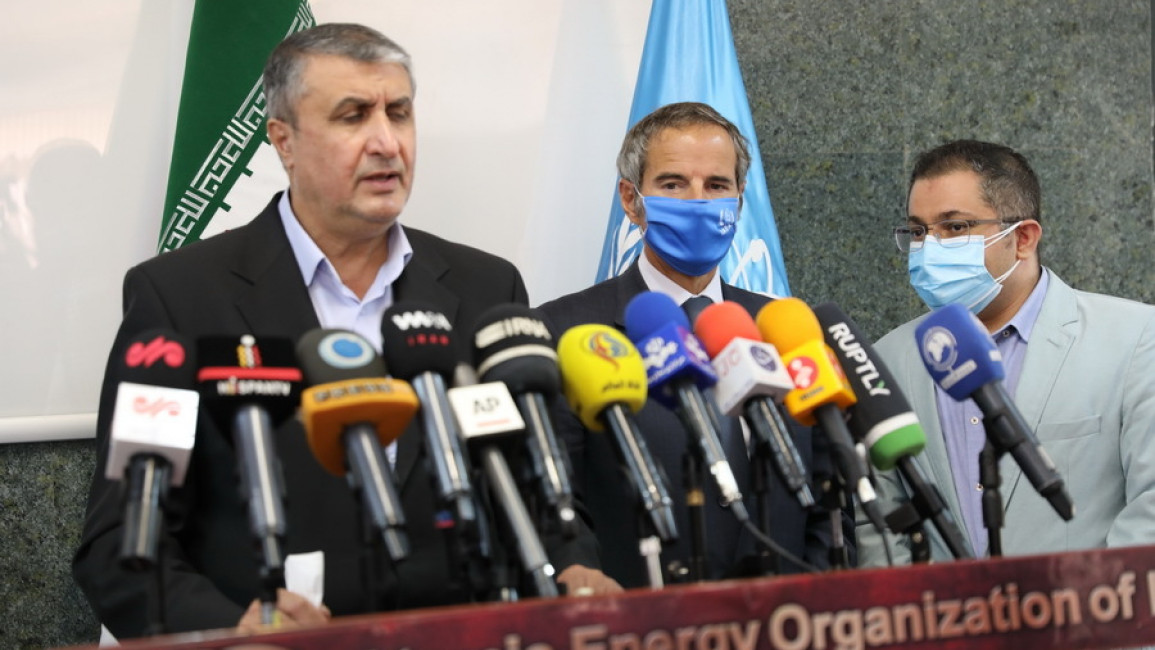Iran to allow new memory cards in UN's nuclear site cameras
The head of Iran's civilian nuclear program says Tehran will allow UN inspectors to install new memory cards into surveillance cameras at its sensitive atomic sites and to continue filming there.
Mohammad Eslami made the comment Sunday after a meeting he held with the director-general of the International Atomic Energy Agency, Rafael Grossi, in Tehran.
Since late February, Iran has restricted IAEA inspectors from accessing the surveillance footage as Tehran's nuclear deal with world powers has collapsed.
The announcement could buy time for Iran ahead of an IAEA board meeting this week in which Western powers had been arguing for Tehran to be censured over its lack of cooperation with international inspectors.
The IAEA told member states in its confidential quarterly report last week that its verification and monitoring activities have been “seriously undermined” since February by Iran’s refusal to let inspectors access their monitoring equipment.
The IAEA also said in reports this week that there had been no progress on two central issues: explaining uranium traces found at several old, undeclared sites and getting urgent access to some monitoring equipment so the agency can continue to keep track of parts of Iran's nuclear programme as provided for by the 2015 deal.
"These reports were the official stamp on what we have been saying for a long time already: The Iranians are advancing unobstructed on the nuclear (weapon) project," Israeli Prime Minister Naftali Bennett said in televised remarks on Sunday. Iran says its nuclear programme is peaceful.
Separate, indirect talks between the United States and Iran on both returning to compliance with the deal have been halted since June. Washington and its European allies have been urging hardline President Ebrahim Raisi's administration, which took office in August, to return to the talks.
Under the 2015 deal between Iran and major powers, Tehran agreed to restrictions on its nuclear activities in exchange for the lifting of sanctions.
President Donald Trump pulled the United States out of the deal in 2018, re-introducing painful economic sanctions. Iran responded as of 2019 by breaching many of the deal's core restrictions, like enriching uranium to a higher purity which makes it closer to that suitable for use in nuclear weapons.
Western powers must decide whether to push for a resolution criticising Iran and raising pressure on it for stonewalling the IAEA at next week's meeting of the agency's 35-nation Board of Governors. A resolution could jeopardise the resumption of talks on the deal as Tehran bristles at such moves.
Countries on the IAEA Board of Governors have watched Grossi's visit to see whether Iran yields either on granting access to the monitoring equipment to service it or offers the prospect of answers on the uranium particles found at the undeclared former sites.
(Reuters)



